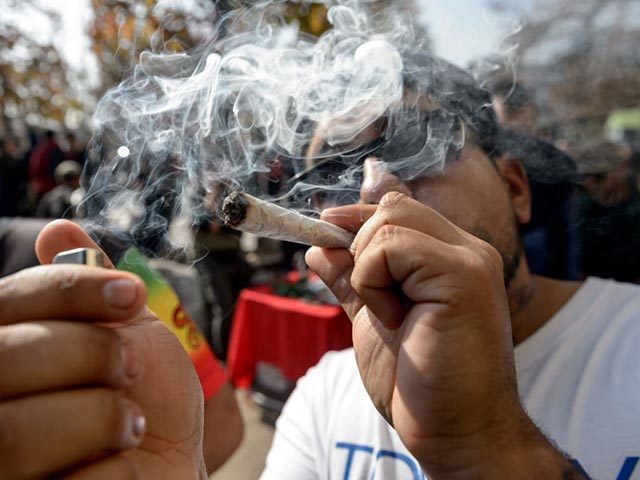The House’s marijuana legalization bill includes an amnesty that can help bring back illegal migrants who were deported after drug convictions.
“Just got around to reading the House #cannabis bill and actually stopped breathing for a few seconds when I saw this subtitle,” said a tweet from Matt Cameron, an immigration lawyer in Boston. “This one sentence could change millions of lives by reuniting families separated by deportation and arbitrary inadmissibility,” he added.
The subtitle in the bill says the legalization covers prior convictions:
In General.—For purposes of the immigration laws … cannabis may not be considered a controlled substance, and an alien may not be denied any benefit or protection under the immigration laws based on any event, including conduct, a finding, an admission, addiction or abuse, an arrest, a juvenile adjudication, or a conviction, relating to cannabis, regardless of whether the event occurred before, on, or after the effective date of this Act.
The bill does not directly grant amnesty to illegal migrants. But it would prevent officials from using marijuana convictions to deport illegal migrants through the clogged courts. The language could also help lawyers argue for the return of illegal migrants who were deported after marijuana convictions.
For example, Cameron’s law firm offers illegal migrants a “Deportation & Removal Defense” service:
If you have received a Notice to Appear placing you in removal proceedings before an Immigration Judge (”IJ”), we can help you to identify possible claims—including adjustment of status, cancellation of removal, asylum, termination of proceedings, or any other solution that may be appropriate to your situation—which you may have to secure your right to remain in the United States.
The bill passed the House, 228 yeas to 164 nays, on December 4 with lopsided Democrat support and just five Republicans’ votes. It would end the federal prohibitions on the possession and use of marijuana but does not set rules for states.
But the bill is very unlikely to pass a GOP-majority Senate.
Advocates for marijuana legalization also scored wins in the November 2020 polls: “In the wake of the election, 15 states will have legalized recreational marijuana, and 35 will allow medical marijuana,” said a December 9 report in Kaiser Health News.
Nationwide, roughly 72,000 Americans were killed by criminal drugs in 2019. Many of those who died were unemployed, abandoned, and depressed after decades of free-trade outsourcing and cheap-labor legal and illegal immigration.

COMMENTS
Please let us know if you're having issues with commenting.